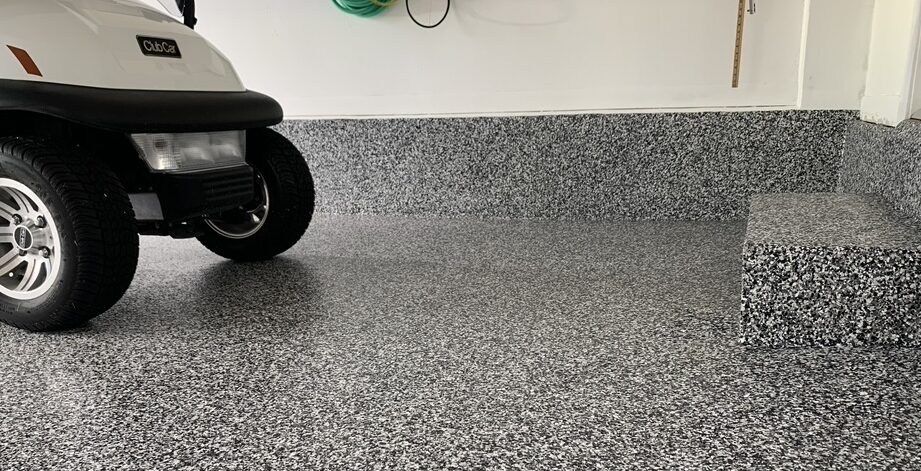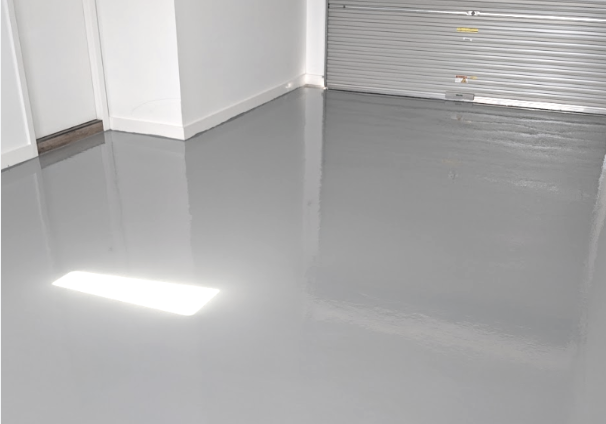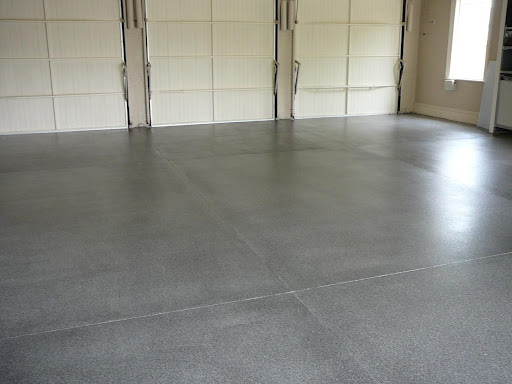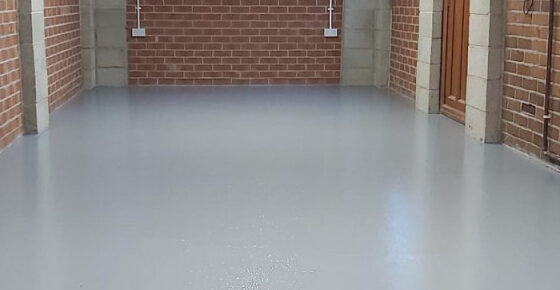Garage floors endure relentless challenges. From the weight of vehicles and foot traffic to spills of oil, chemicals, and even road salt, they bear the brunt of daily activities. Add in the impact of temperature fluctuations and moisture exposure, and it’s clear why garage floor protection is not just beneficial but essential.
Concrete, the most common garage flooring material, is sturdy but vulnerable. Over time, neglect can lead to cracks, stains from spills and efflorescence, pitting, uneven coloring, and even surface spalling. To address these concerns, homeowners have a variety of garage floor protection options at their disposal. However, not all products offer the same level of protection. Understanding which options rank highest is crucial for making an informed decision.
The garage: A space that demands durable protection
The garage serves as a workshop, storage space, and parking area—all of which subject its floor to immense pressure and potential damage. Choosing the right garage floor protection involves evaluating several critical factors:
Durability: Opt for coatings or sealants capable of withstanding heavy vehicle loads, resisting scratches, and enduring chemical spills without compromising performance.
Style: Select a finish that not only protects but also enhances your garage’s aesthetic appeal.
Cost: Evaluate both initial installation costs and long-term maintenance expenses to ensure the chosen solution fits your budget without sacrificing quality.
Ease of installation: Decide if hiring a professional installer is necessary or if you opt for a simpler DIY coating.
Maintenance requirements: Choose a solution that offers minimal upkeep, such as routine cleaning and occasional resealing, to preserve its protective qualities over time.
Environmental impact: Opt for eco-friendly materials with low VOC emissions that promote a healthy indoor environment.
Safety: Prioritize slip resistance to enhance safety, especially in a space frequently traversed by family members and visitors.
Ranking the best and worst garage floor protection options
We’ve compiled a comprehensive list of five common garage floor protection solutions, ranging from high-performance coatings to less effective options often misunderstood by consumers. It’s essential to debunk myths and ensure that your chosen solution meets your garage’s specific needs.
Polyaspartic floor coatings
Polyaspartic floor coatings are recognized for their exceptional durability and robust bond with concrete, making them a top choice for protective garage flooring. These coatings deeply penetrate the concrete, offering resistance against impacts, harsh chemicals, and temperature changes. They strike a balance between enduring protection and aesthetic appeal, enhanced by decorative colored flakes added before the top coat.

The application of polyaspartic coatings is intricate and temperature-sensitive, demanding precision and ideal conditions from skilled professionals. Despite curing rapidly, allowing little room for corrections, these coatings deliver long-lasting performance with a durable top coat that resists damage from impacts, abrasions, chemicals, and “hot tire pickup”. Moreover, they significantly reduce dust production compared to bare concrete floors.
Epoxy floor coatings
Epoxy floor coatings are a popular choice for garage flooring due to their affordability and effective protection. They provide a rigid and resilient surface that can withstand regular garage activities while offering customization with various colors and finishes. This makes them appealing to DIY enthusiasts looking to enhance their garage’s durability and aesthetics without professional installation.
However, epoxy coatings have notable limitations. They may yellow when exposed to UV light and struggle with extreme temperatures, which can reduce their durability and longevity, especially in outdoor or sunlit areas. Additionally, achieving a successful application requires thorough surface preparation and can be time-consuming, posing challenges for less experienced DIYers.
Concrete resurfacers
Concrete resurfacers offer a practical solution for addressing superficial damage on garage floors, providing a cosmetic upgrade without the robust protection of advanced coatings. Typically composed of sand, cement, and polymers, these resurfacers effectively smooth out minor imperfections such as small cracks and uneven areas, rejuvenating the floor’s appearance.

While concrete resurfacers enhance the visual appeal of garage floors, their protective qualities are limited. They provide a thinner layer of protection making them ideal for minor cosmetic improvements, but less effective against heavy wear and severe damage. However, they are cost-effective for quick touch-ups and can extend the life of a garage floor that doesn’t require the durability of high-end coatings.
Garage floor tiles
Garage floor tiles offer a practical and customizable solution for enhancing garage floors. These tiles, often made from durable materials like PVC, are designed to withstand heavy garage use and traffic. They come in various colors and styles, allowing homeowners to create a personalized look for their garage space.

The ease of floor tiles installation is a significant advantage; the interlocking design of these tiles makes them a convenient choice for quick renovations. While they don’t repair underlying floor damage, they effectively conceal imperfections and prevent further surface deterioration. Their removable nature means damaged tiles can be easily replaced without extensive floor work, making them a flexible and low-maintenance option for busy households. Other advantages are: fast installation time, versatility, easy replacement of damaged tiles, and the ability to create a custom floor look with different tile colors and styles.
Garage floor paints
Garage floor paints are a popular yet temporary option for enhancing the appearance of concrete floors. They offer immediate aesthetic appeal with various color choices and are relatively easy to apply. However, to achieve lasting results, proper surface preparation is essential, including crack repair and degreasing. Despite enhancing the floor’s look, paints provide minimal protection; they do not shield against damage from heavy use or chemicals. Painted surfaces often chip and require frequent touch-ups or complete reapplication. While floor paint offers a quick fix, it lacks durability and long-term resistance in garage environments.

Conclusion
In conclusion, protecting your garage floor isn’t just about preserving its appearance—it’s about ensuring its durability and safety for years to come. By understanding the challenges your garage floor faces and carefully considering these factors, you can make an informed choice enhancing the functionality and aesthetic appeal.
For more detailed insights into garage floor protection and to explore the best options for your needs, continue reading our blog. Discover how the right protection can transform your garage into a more resilient and visually appealing part of your home.
